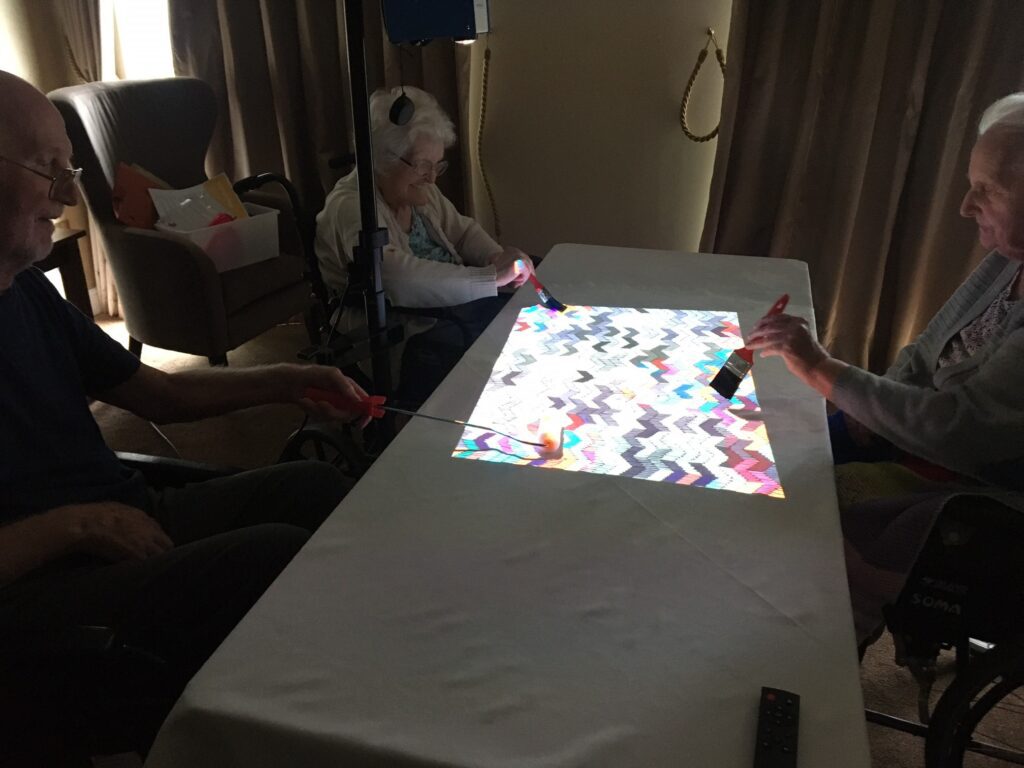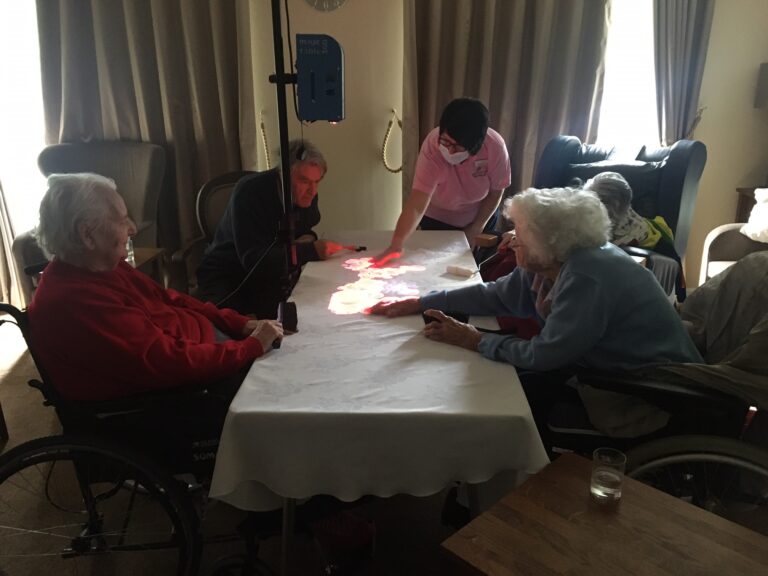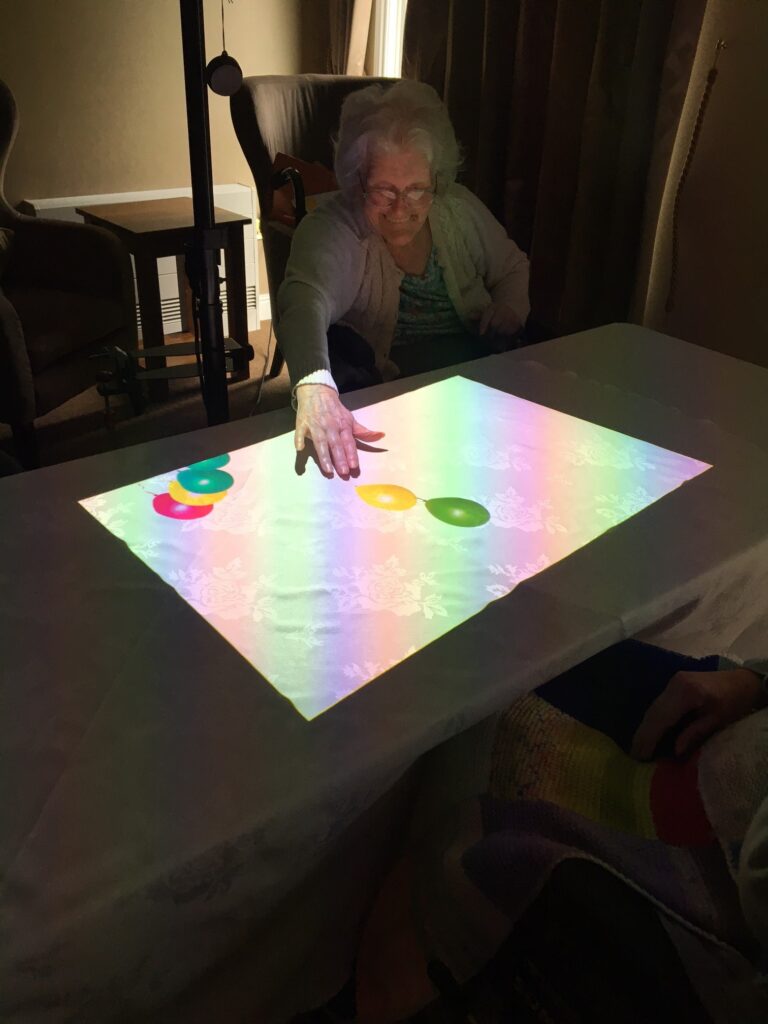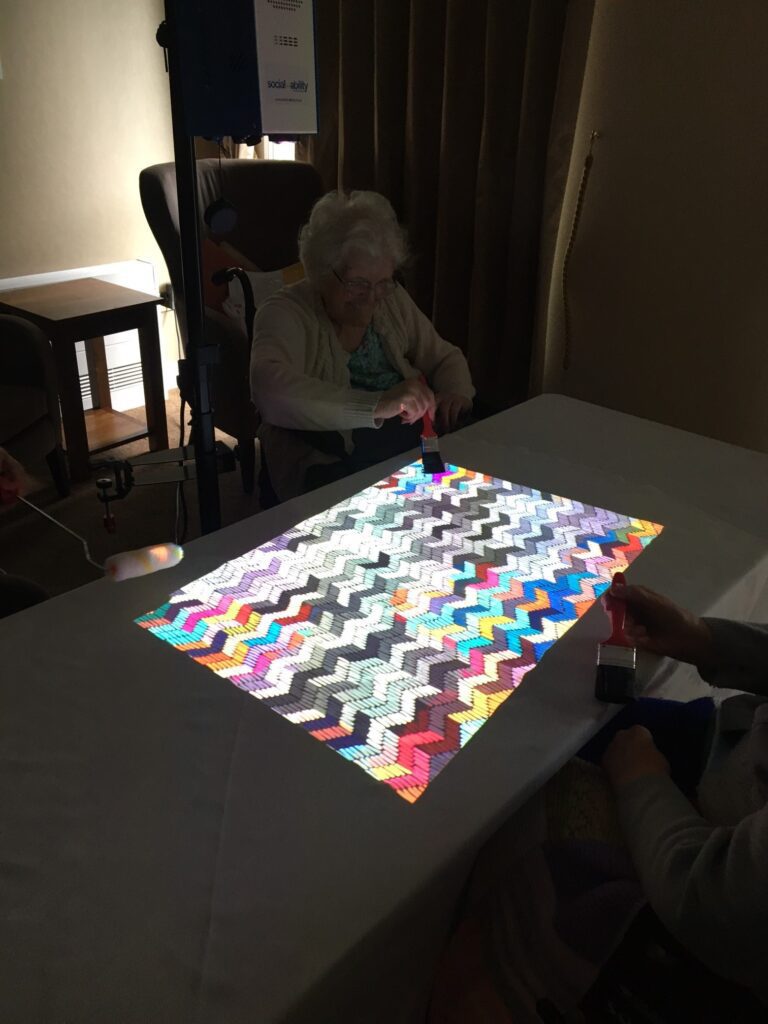Some bed bound activities may include the Social-Ability interactive projector, a part of the Happiness Programme, uses interactive light technology to provide a sensory experience for those who use it. It’s a specialist piece of equipment designed to bring joy and happiness and is proven to have a hugely positive impact on those that use it.
We spoke to Debbie Webb at Orchard House, a specialist dementia care home, to understand the impact the Happiness Programme has had on their residents.


Can you tell us a bit about Orchard House?
Yes – we have around 50 residents, the majority of which live with dementia. Around half of those we’d classify as mid to late stage dementia.
We’re a nursing home so we also have residents who have other physical and cognitive care needs; which means some of them are nursed in their own rooms.
What have been your experiences since starting the Happiness Programme?
It’s been a brilliant resource and has enabled us to offer an activity that’s totally different to anything else we’re able to offer. For a nursing home, the fact you can easily move it between rooms is so useful.
We have 1 day a week when the magic table 360 is used in a communal space for group sessions, but beyond that we use it every day in people’s bedrooms. 1 room in the morning and 1 room in the afternoon. It takes about 3 weeks to visit everybody, but it’s proven really effective.
Some residents have been so absorbed and focused on the games and videos, they’ve had it in their room for the entire day, and one even had it overnight.


Can you tell us about any specific resident experiences?
Yes – we’ve got one lady who has difficulty communicating and who is bed-bound. She doesn’t tend to engage very much. When we introduced her to the magic table 360, it really caught her eye and focus. She loves the Pond Fishing game and she was using her finger to follow the fish as they swam across the ceiling above her bed. I went back an hour or two later and she was still engaged, following the fish across her ceiling.
We have another resident who is losing the sight in her eyes. The colours of the games are so bright and vibrant that she can really engage with it. It’s been great for her.
The group sessions are also successful. The residents get competitive and can meet and interact with people they wouldn’t usually see. It’s really sociable in that respect.
The overall impact for many of our residents has been more waking hours and less time sleeping. For our residents with dementia, it’s proven effective regardless of the stage of their condition. They’re more engaged and can benefit from the activity even if they can’t physically interact with the activity.
Has there been an impact on the staff?
Yes, I’ve observed an interesting natural habit of the staff tending to gravitate towards the magic table 360. This has been great as it’s created more moments between staff and residents who otherwise might not see each other at that time of day.
From a staff perspective, we benefit when our residents are happy and engaged.
Not a member of the happiness programme?
The Happiness Programme is a first-of-its-kind initiative helping to change the lives of people living with cognitive challenges. We use interactive light technology to provide meaningful activities for residents and patients in care homes and care settings. For more detail on what the Happiness Programme is and how it’s helping care venues across the UK, visit our getting started page.
Alternatively, jump to our dementia, learning disability, rehabilitation and NHS pages for more specific detail on how it’s helping care homes like Barchester and HC-One as well as hospitals and local authorities such as St George’s Hospital, London and Westminster and South Kensington Council.
For anything else, you can contact us here too.

Copyright © 2021 Social-ability. All Rights Reserved.